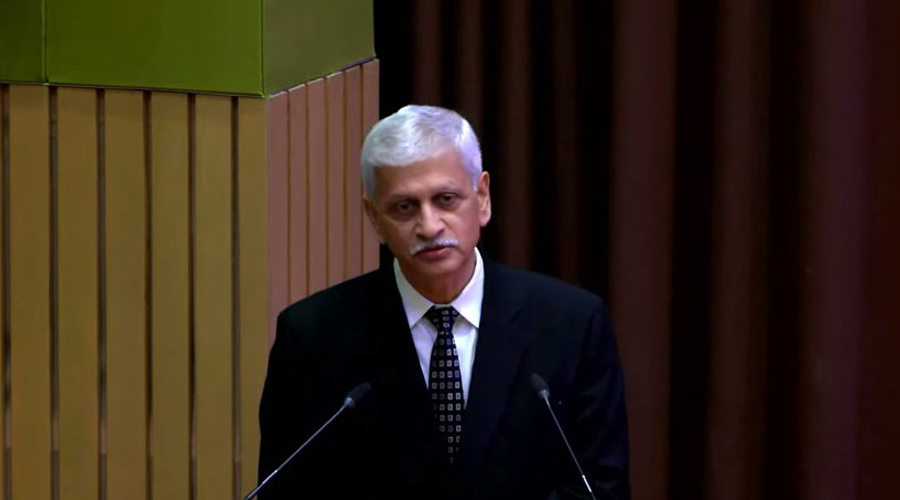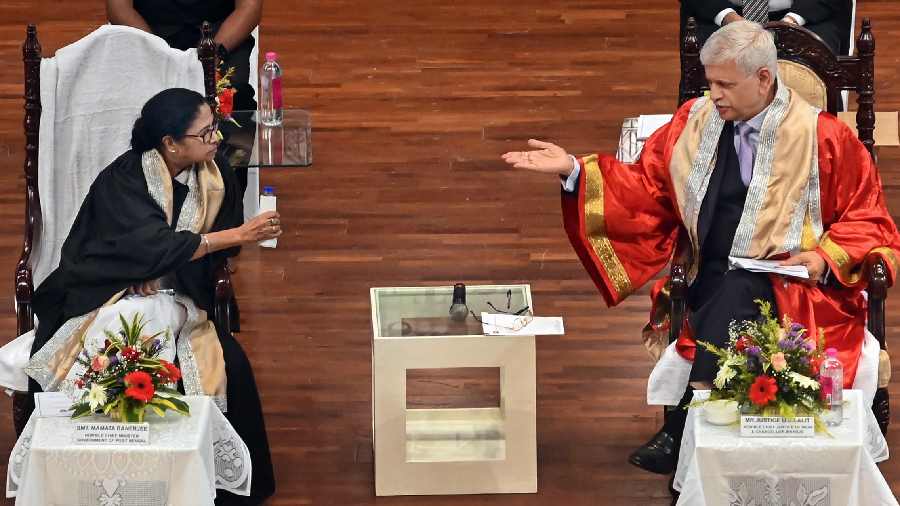Chief Justice of India Uday Umesh Lalit Tuesday recused himself from hearing an appeal of the Andhra Pradesh government against the high court verdict that held the state legislature "lacked competence" to make any legislation for shifting, bifurcating or trifurcating the capital.
The moment the state government's plea came up for hearing, a bench comprising the Chief Justice of India (CJI) and Justice Bela M Trivedi was apprised that Justice Lalit, as an advocate, had once given a legal opinion on the issue related to the bifurcation of Andhra Pradesh.
"Let the matter be listed before a bench to which I am not a member," the CJI said.
Now, the matter will be placed before the CJI in his administrative capacity for its allocation to an appropriate bench.
The Andhra Pradesh High Court, on March 3 this year, had ruled that the state legislature "lacked competence" to make any legislation for shifting, bifurcating or trifurcating the capital, thereby effectively putting paid to the plans of Chief Minister Y S Jagan Mohan Reddy to have three different capitals for the state.
A three-judge bench of the high court had held that the state government) and the AP Capital Region Development Authority violated the fundamental rights of the petitioners (farmers who parted with their land) and directed that the state construct and develop Amaravati capital city and capital region within six months.
"The inaction of the state and APCRDA... failure to develop the capital city and capital region as agreed in terms of the Development Agreement-cum-Irrevocable General Power of Attorney, is nothing but a deviation from the promise made by the state, defeating legitimate expectation," the high court had said.
Further, the state and the APCRDA violated the fundamental rights of the petitioners (farmers), as they surrendered their only source of livelihood (over 33,000 acres of fertile land), it had said.
The high court verdict had come on a batch of 63 petitions filed by aggrieved farmers of the Amaravati region against the Jagan regime's decision to make Visakhapatnam the Executive Capital, Kurnool the Judiciary Capital and confining Amaravati as the Legislative Capital of Andhra Pradesh.
The high court had directed the state and the APCRDA not to alienate/mortgage or create any third-party interest on the land pooled (from farmers), except for the construction of the capital city or development of the capital region.
It had also ordered them to complete infrastructure development like roads, drinking water, drainage, and electricity in the Amaravati Capital City and Region within one month.
"The state and APCRDA are further directed to deliver/hand over the developed reconstituted plots in Amaravati capital region, on ground, to the landholders who surrendered their land as promised by the state, within three months from the date of this order.
"The state and APCRDA shall develop the reconstituted plots by providing approach roads, drinking water, electricity connection to each plot, drainage, etc., to enable the same to be fit for habitation in the Amaravati Capital city," the high court had ordered.
"Parliament alone is competent to undertake such exercise, but not the State legislature. The facts on record like the approval of passing of legislation (APCRDA Act, 2014) and taking up land under the Land Pooling Scheme under the APCRDA Act, 2014, payment of Rs 15,000 crore for the capital city and region's development is sufficient to conclude that Parliament delegated power to the state under Article 258 (2) of the Constitution of India, which is a one-time delegation, the bench had observed.











